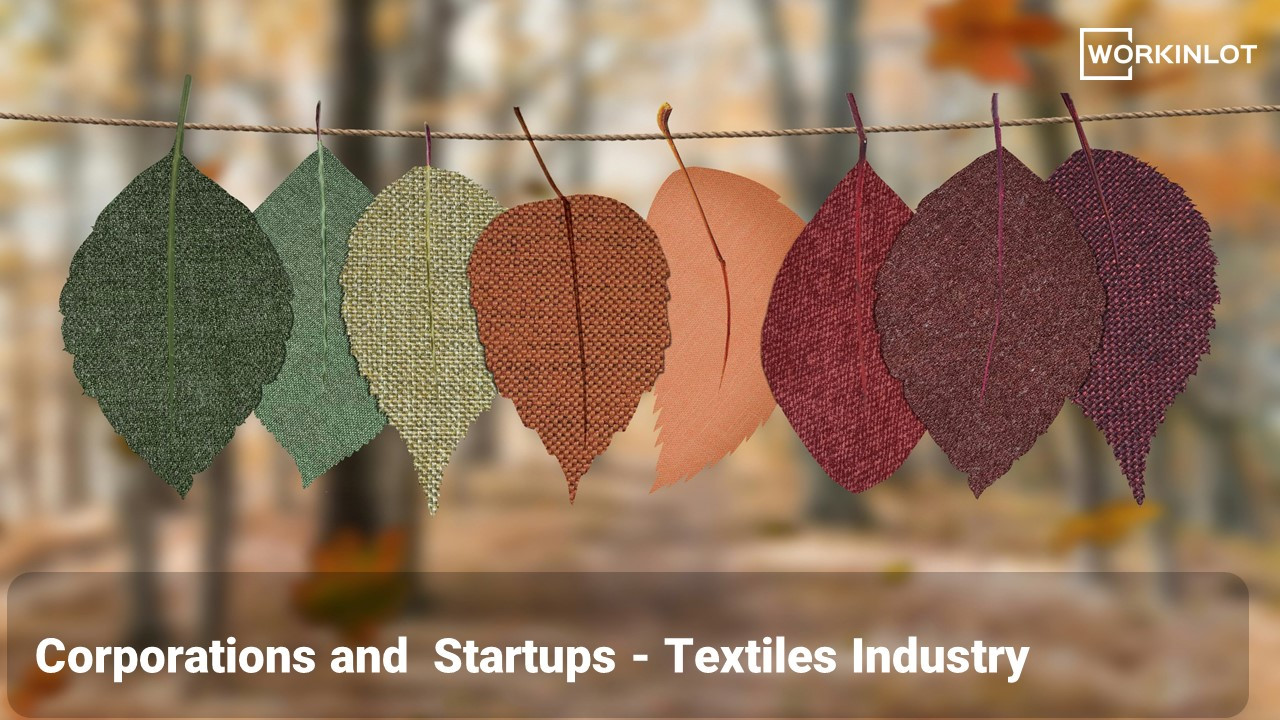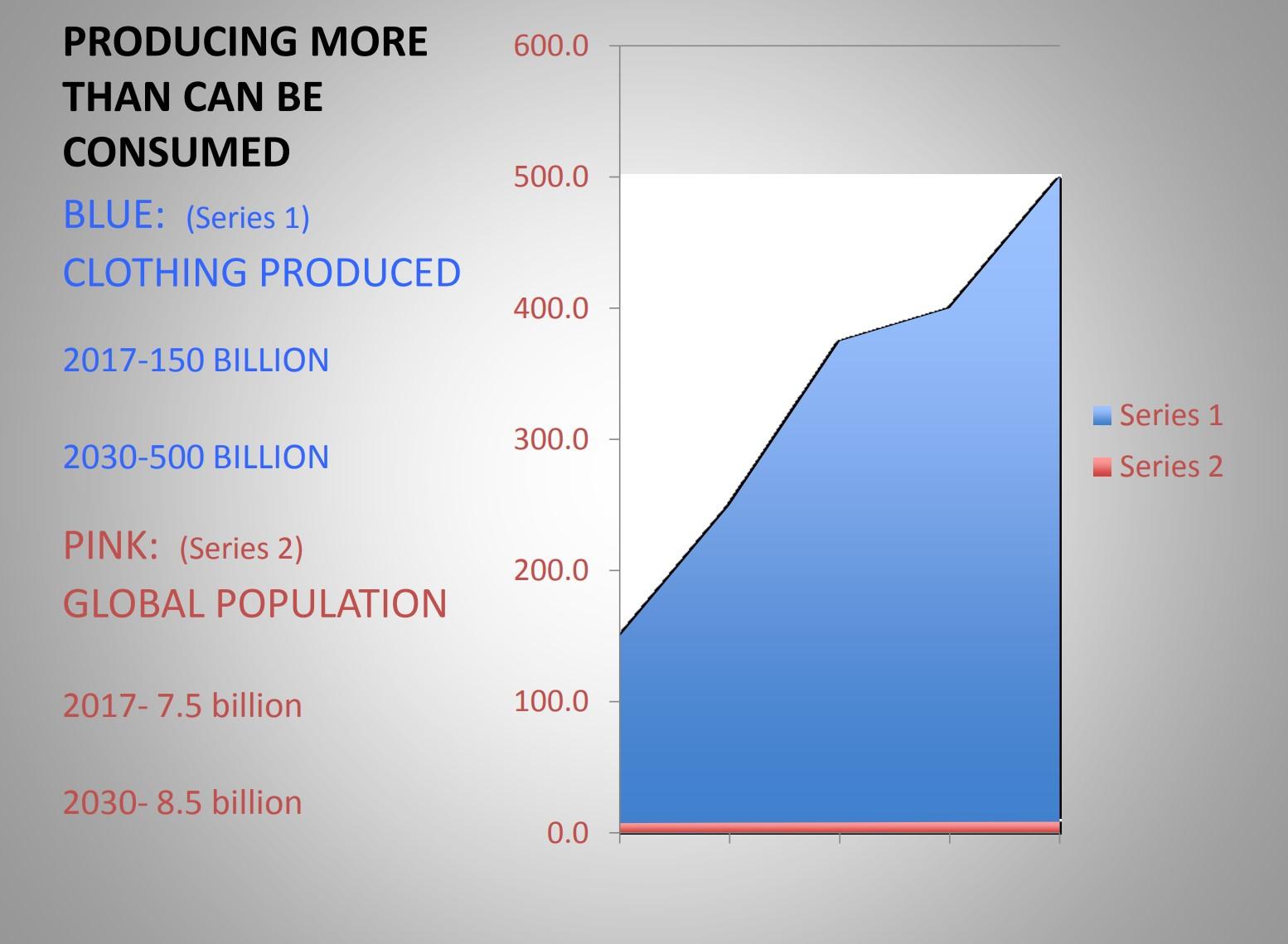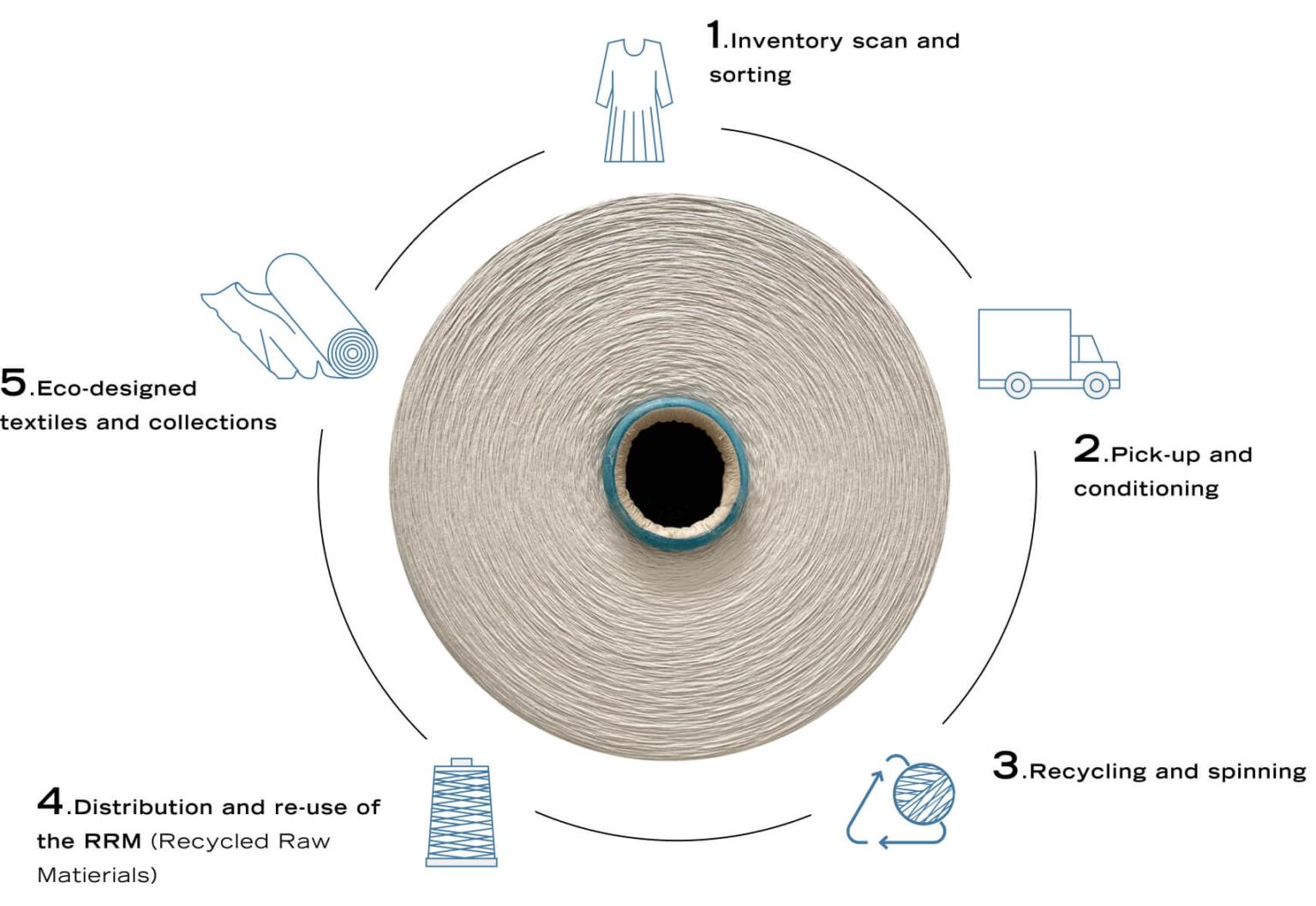
Cover photo by Designecologist
Corporations have limited mobility. But when they focus, the impact they can have is huge.
Startups, on the other hand, have the agility to test risky new technologies and business models. Due to the risks of navigating the uncharted, their failure rates are very high. ( 90% Of Startups Fail )
As of 2022, Türkiye is the fourth-largest textile market in the world. (Textiles and clothing industry in Turkey - statistics & facts) With this afflation, we will look into the global change in the textile industry and the new opportunities upon us. Textile companies began to move their financial investments to other markets due to increasing minimum wage obligations, exchange rate instability, and most importantly, a lack of value-added products. (Turkish investments in Egypt reach $3B)
We will focus on the "failure to create a value-added product" part of the change. When we think like a startup, we start to see opportunities.
The Changing Need and The Solution
To innovate, market demand and regulations are key essentials. Counterfeit and uncontrolled products are a major part of our lives. (Turkish Knock-offs) Despite all efforts, the inability to prevent the circulation of counterfeit products prevented the emergence of new and value-added products. The textile industry, focusing on producing cheap products for such reasons, has resorted to finding other cheap ports with the global financial fluctuation.
Other major catalysts for change are the new regulations and changing market dynamics in developed export markets. Carbon border regulation, the Corporate Sustainability Reporting Directive, and green taxation are now concrete realities. (Navigating the Green Strait: How Turkish Industry Can Adapt to EU Climate Regulations) It is not easy to both focus on cheap production and drive innovation at the same time...
Even just these few topics mentioned above, point to a substantial need and new opportunities that come along with it.
Substantial need and opportunity are the reasons why startups exist. Naturally, they began to create the new in an old industry.
The new sustainability mindset, change in consumer demand, and expectations are other factors driving innovation in the industry via new technologies and business models.

1- Digital traceability platforms
TextileGenesis is a leading traceability platform created specifically for the textile and clothing industry. Blockchain technology enables digital tracking of the entire ready-made clothing supply chain, from fiber producers to fabric factories, dyehouses, cutting and sewing, to retail brands. (TextileGenesis)
2- Sharing economy business models
Davetcokelbisemyok and Unomoi, Turkish startups addressing the sharing economy needs of customers. Denebunu.com on the other hand, makes it easier to "try" before buying with its subscription model for shopping in many different sectors such as textiles and cosmetics.
Rent the Runway, is a startup that allows people to rent designer dresses for a fraction of the cost of purchasing them.
The Volte is a global P2P designer clothing marketplace. Its motto is "access is the new ownership".
Netflix of clothing, sustainable luxury, p2p clothing marketplaces, and rental, subscription models are growing and shaping the textile industry.
(New Business Models for the Modern Consumer)
3- Sustainability and waste management
Another concern more frequently raised about the textile industry is that production exceeds demand.
This inefficiency leads to excessive carbon emissions and waste management problems, making the textile industry one of the worst impact makers. (The price of fast fashion)
 https://fashioninstitute.mmu.ac.uk/assets/uploads/2017/06/Paper15_New-way-to-do-business.pdf
https://fashioninstitute.mmu.ac.uk/assets/uploads/2017/06/Paper15_New-way-to-do-business.pdf
To address this inefficiency and waste problem, several different business models and services surfaced.
Byewaste offers a door-to-door service for the reuse and recycling of a wide range of products, from textiles to toys.(https://www.byewaste.nl/) New-generation consultancy and project companies such as Circular Republic provide services to textile companies that enable them to produce less waste and recyclable products. (Circular Republic)
French recycling startup Weturn connects digital traceability with smart waste management with its "crystalchain" platform and a circular business model. It increases traceability in textile production and use by monitoring the fabric supply chain of textile companies from start to finish and providing recycling services.
With a unique recycling technology, Renewcell breaks down used cotton and other cellulose-rich textiles and turns them into a biodegradable raw material. The resulting "circulose" pulp is used to produce biodegradable viscose or lyocell textile fibers. Renewcell and Textilegenesis combined their competencies in a collaboration. While Textilegenesis is monitoring the entire supply chain, Renewcell will be providing raw materials to the supply chain. (Renewcell, TextileGenesis to partner on Circulose supply chain traceability)
Re4Circular technology, an artificial intelligence-based solution, provides functionality as a B2B-type digital marketplace and enables the automatic cataloging and digitization of textile waste. (https://atelier-riforma.it/?page_id=1319&lang=en)

4- Direct-to-consumer (D2C) sales:
Brands that sell directly to consumers eliminate intermediaries and establish direct relationships with their customers.
Startups working with the D2C models engage with their customers while offering competitive prices, using e-commerce and social media platforms.
By bypassing traditional retail channels, D2C brands gain greater control over their supply chains, pricing, and customer experience.
Warby Parker, Glossier, and Bombas are prime examples of D2C brands that are revolutionizing the fashion and beauty industries, capturing the attention of consumers with their unique value propositions.
Conclusion
There are many startups that we cannot all fit into this brief article. There are many because the problem and the audience it addresses are immense.
While startups are developing with new technologies and business models, venture capitalists are among those who are funding this change.

The basic requirement for a growing textile startup cluster is directly correlated to the maturity of corporate demand and regulatory supports that protect innovation in the specific market.
For these reasons, markets like Italy, England, and the Netherlands stand out as the right match for textile startups.
Textile giants' focus on financial investments created an opportunity for companies and startups to make strategic investments in harmony with the new market dynamics.
Working with startups and leveraging the value they create is the right choice for textile companies that want healthy growth in the new era.
We recommend that textile enterprises engage with relevant startups and build their autonomous venture builder structures that can answer the fast pace of changing demand.